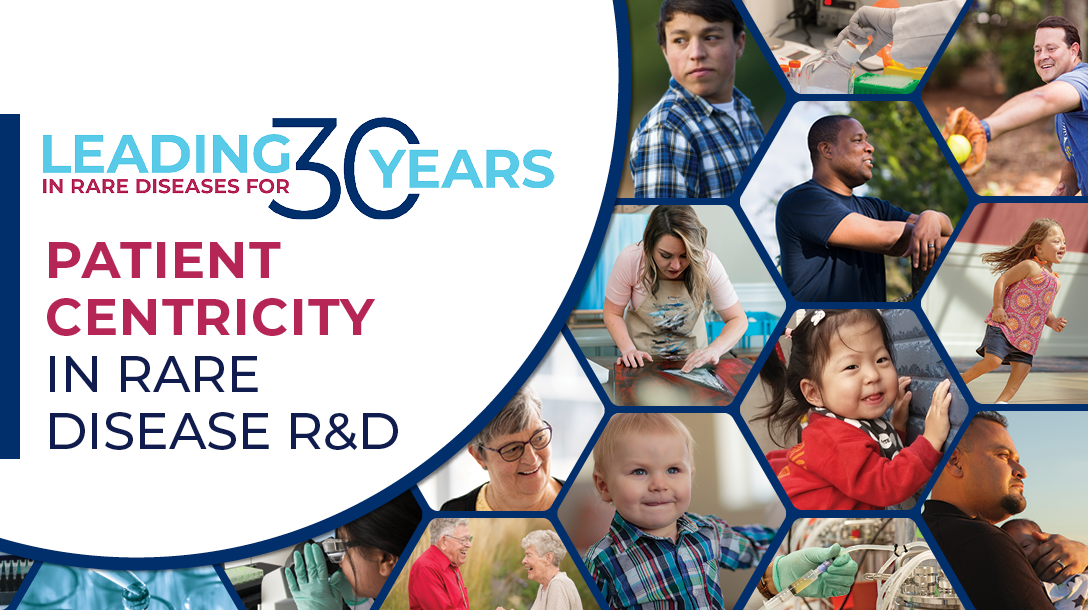
Pioneering transformational medicines for rare diseases requires not only scientific expertise but also a deep knowledge of the patient experience. To deliver medicines that truly meet the needs of patients and their families, we must listen, learn and incorporate their insights into our research and development (R&D). At Alexion, we put patient centricity into action every day through our people, innovative processes and metrics that keep people living with rare diseases at the heart of our work and hold us accountable to those who matter most.
Given small populations and need for real world evidence for rare diseases, direct engagement with the patient community is essential for innovation. Our approach begins at the earliest stages of the R&D process, before Phase 1 trial design. Through frameworks we’ve established like Solutions To Accelerate Results for Patients (STAR), we bring patients, physicians and caregivers together to broaden our understanding of the patient experience and the impact of the disease on daily life and help us identify opportunities to deliver value-added solutions. These deep engagements and workshops guide important decision-making across the organization, including the molecules we design, the patient populations we serve, and how we design and execute clinical trials.
Direct feedback from individual patients and caregivers helps us shape our clinical trial protocols, so that trials are accessible and conducive to long-term participation. These insights also inform how we define and evaluate trial outputs, ensuring they reflect meaningful outcomes. We have also implemented metrics and measures for seeking and applying patient input in R&D, helping to hold us accountable for putting patient centricity into practice.
Wendy Erler, VP, Head of Patient Experience & Insights, underscores the importance of this approach: “In rare disease especially, where journeys to diagnosis are often long and many conditions have so few treatment options, it is incredibly important that patients are heard and see the impact of their contributions on therapeutic development. By prioritizing two-way dialogue and engaging patients early and often, we have not only accelerated development for many therapies, but we make certain our goals match theirs by mapping back to what matters most for patients.”
As part of our efforts, we recently hosted a webinar on the topic of “Embedding the Patient Voice in Clinical Trial Design.” Effie Parks, a rare disease caregiver and host of the Once Upon a Gene podcast, moderated a conversation with Alexion leaders Gianluca Pirozzi, SVP, Head of Development & Safety, and Wendy Erler, as well as Jenn McNary, rare disease caregiver, advocate and co-founder of One Rare, to discuss why it is so important to engage patients and caregivers in the clinical trial process for rare diseases. Watch the recording of this powerful session in our Listening & Learning series to hear first-hand clinical trial experiences and learn about our work to infuse the patient voice in our clinical trial programs.
With 30 years of leadership in rare diseases, we remain committed to following science to discover, develop, and deliver transformational medicines for even more patients.